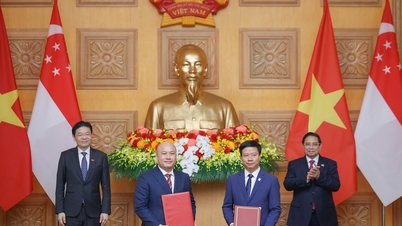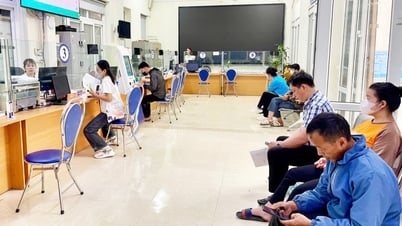ANTD.VN - Some regulations on multi-level marketing in the draft Law on Consumer Protection that the Ministry of Industry and Trade is consulting on are unreasonable, according to the Vietnam Federation of Commerce and Industry (VCCI).
 |
VCCI recommends that the Ministry of Industry and Trade consider some regulations related to multi-level sales. |
Specifically, Article 25.1 of the draft stipulates prohibited acts in multi-level marketing. VCCI recommends that the drafting agency consider the following points:
Prohibiting “selling goods to multi-level marketing individuals when the multi-level marketing individuals have not sold or consumed 80% of the goods of the most recent purchase” in Article 25.1.d of the draft is not feasible because enterprises cannot control and verify this 80% rate, leading to the risk of violating the law, even having their business certificates revoked;
Or the concepts of “exceeding usage needs”, “exceeding sales capacity” and “unusually large volume” in Article 25.1.d are general concepts that are difficult to quantify, depending on interpretation, leading to legal risks for businesses. At the same time, businesses have no way to determine the usage needs and sales capacity of these individuals selling goods.
Regarding the responsibilities of multi-level marketing enterprises, Article 26 of the draft stipulates the responsibilities of multi-level marketing organizations, including the responsibility to “maintain the revenue ratio from selling goods to consumers who are not multi-level marketing participants” and provide basic training to participants within 30 days from the date of participation.
VCCI believes that these provisions are not stipulated in the Law, and therefore should not be considered as detailed regulations of Article 45 of the Law. Furthermore, these provisions have been stipulated in Decree 40/2018/ND-CP, Decree 18/2023/ND-CP, and therefore it is not necessary to repeat these provisions.
Therefore, to ensure the consistency of the law, VCCI recommends that the drafting agency remove these provisions.
Source link


![[Photo] President Luong Cuong attends the inauguration of the international container port in Hai Phong](https://vphoto.vietnam.vn/thumb/1200x675/vietnam/resource/IMAGE/2025/5/13/9544c01a03e241fdadb6f9708e1c0b65)
![[Photo] Prime Minister Pham Minh Chinh receives Ambassador of the French Republic to Vietnam Olivier Brochet](https://vphoto.vietnam.vn/thumb/1200x675/vietnam/resource/IMAGE/2025/5/13/f5441496fa4a456abf47c8c747d2fe92)


![[Photo] Many people in Hanoi welcome Buddha's relics to Quan Su Pagoda](https://vphoto.vietnam.vn/thumb/1200x675/vietnam/resource/IMAGE/2025/5/13/3e93a7303e1d4d98b6a65e64be57e870)
![[Photo] President Luong Cuong awarded the title "Heroic City" to Hai Phong city](https://vphoto.vietnam.vn/thumb/1200x675/vietnam/resource/IMAGE/2025/5/13/d1921aa358994c0f97435a490b3d5065)


























































































Comment (0)